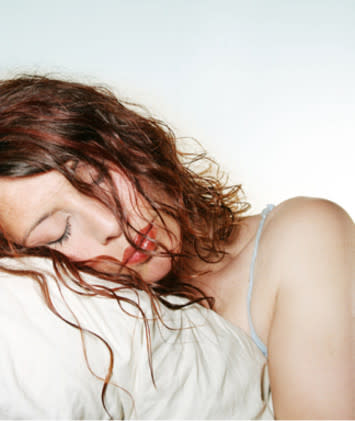Beauty Tip: Sleep Slim-Down
I wish I could sleep my way to a better bod-is there any hope?
By Emily Hebert

Photo: iStockphoto
It's true: Squeezing in that requisite amount of daily exercise is easier said than done. You're definitely not the first to find yourself lying in bed after a long day's work, wishing your abs and tush would magically tighten overnight. But rather than feel guilty for passing out instead of hitting the gym, give yourself a pat on the back. Multiple studies suggest that getting adequate sleep (about seven to eight hours per night) is necessary to ward off weight gain. Separate research done by the University of Chicago and University of Pennsylvania, for example, revealed that sleep-restricted subjects gained more weight over time than those who were well rested.
Culprits behind sleep-deprived weight gain are believed to be leptin and ghrelin, two hormones that affect how full you feel. During normal sleep patterns, levels of leptin (an appetite suppressant) rise and levels of ghrelin (an appetite stimulant) fall. When you're short on sleep, however, this delicate balance is disrupted; your body ends up producing less leptin and more ghrelin, making you feel hungrier than you would otherwise.
The trick to sleeping more and gaining less? First of all, if you're raiding the kitchen cabinets for a midnight snack to satiate your ghrelin-fueled hunger, reach for healthful cereal or crackers and skip the sweets. And when it comes to exercising, rework your schedule to accommodate morning or lunchtime workouts (according to the National Sleep Foundation, exercising two to three hours before bed can interfere with a good night's rest). Exercise can range from simple stretches (yoga, anyone?) or lunchtime cardio (join a gym near your office) to more intense workouts (walk or bike to and from work). As long as you get 30 to 40 minutes of exercise a day, you'll not only sleep better at night-you'll look and feel better, too!
